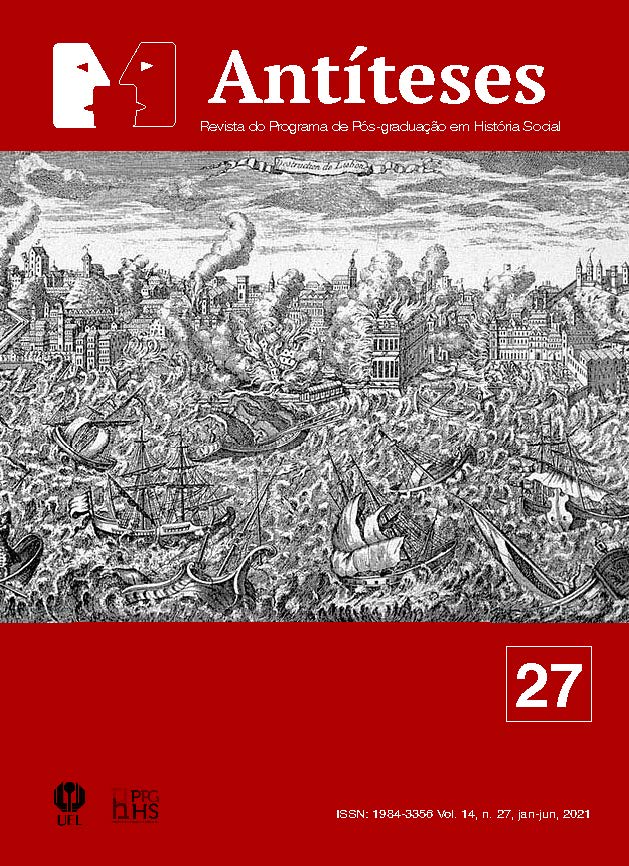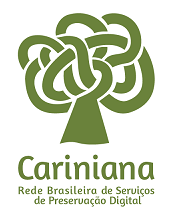Middle Ages à la carte: meanings, tensions and challenges of medievalism
DOI:
https://doi.org/10.5433/1984-3356.2021v14n27p29Palavras-chave:
Middle Ages, relevance, popular culture, academic culture, medievalismResumo
In twenty first century, we witness a widespread interest in medieval. However, while this growth has contributed to increasing the study of medievalism, it has negatively influenced the academic disciplines dedicated to the Middle Ages, mainly due to questions related to the value of this research area. In order to reflect on the meanings, tensions and challenges of medievalism, this essay begins by examining the popular images of Middle Ages, their causes and the preconceptions they involve. It goes on to consider the changing role of medievalism given the methodological transformations experienced by the discipline and the role played by medieval scholars in our societies. Finally, it contends that the distinction between ‘usefulness’ and ‘relevance’ may be the key to remain Medieval Studies relevant against a political and social discourse trying to discredit the knowledge and responds that the medieval area can offer to contemporary problems.
Downloads
Referências
BULL, Marcus. Thinking medieval. An introduction to the study of the Middle Ages. London: Palgrave McMillan, 2005.
BURNOUF, Joëlle et al. Sociétés, milieux, ressources: un nouveau paradigme pour les médiévistes. In: SOCIETE DES HISTORIENS MEDIEVISTES DE L’ENSEIGNEMENT SUPERIEUR PUBLIC (dir.). Être historien du Moyen Âge au XXIe siècle. Paris: Éditions de la Sorbonne, 2019. p. 77-106.
CANTERA, Carmen Susana. Historia y discurso: claves conceptuales y ejemplos para comprender la construcción de la otredad. In: MIRANDA, Lidia Raquel (ed.). Espejo sin héroes. Personajes marginales en la literatura medieval. Santa Rosa: EdUNLPam, 2020. p. 15-35.
COLOMBO, Furio. Poder, grupos y conflicto en la sociedad neofeudal. In: ECO, Umberto; COLOMBO, Furio; ALBERONI, Francesco; SACCO, Giuseppe. La nueva Edad Media. Tradução: Carlos Manzano. Madrid: Alianza, 2004. p. 37-75.
DE CERTEAU, Michael. La cultura en plural. Tradução: Rogelio Paredes. Buenos Aires: Nueva Visión, 1999.
DÍAZ, Esther. Posmodernidad. Buenos Aires: Biblos, 1999.
ECO, Umberto. El vértigo de las listas. Tradução: María Pons Irazazábal. Barcelona: Lumen, 2009.
ECO, Umberto. La Edad Media ha comenzado ya. In: ECO, Umberto, COLOMBO, Furio; ALBERONI, Francesco; SACCO, Giuseppe. La nueva Edad Media. Tradução: Carlos Manzano. Madrid: Alianza, 2004. p. 7-35.
ECO, Umberto. Towards a new Middle Ages. Art as bricolaje. In: BLONSKY, Marshall (ed.). On signs. Baltimore: The John Hopkins University Press, 1985. p. 501-510.
FERRARI, Jorge Luis; MIRANDA, Lidia Raquel. Europa, Europae: textos y contextos para reflexionar sobre los temas de la tradición occidental. Buenos Aires: Ediciones Biebel, 2012.
GARCÍA CANCLINI, Néstor. Culturas híbridas: estrategias para entrar y salir de la modernidad. Barcelona: Paidós, 2010.
GENET, Jean-Philippe. Être médiéviste au XXIe siècle. In: SOCIETE DES HISTORIENS MEDIEVISTES DE L’ENSEIGNEMENT SUPERIEUR PUBLIC (dir.). Être historien du Moyen Âge au XXIe siècle. Paris: Éditions de la Sorbonne, 2019. p. 10-28.
GRIGNON, Claude; PASSERON, Jean Claude. Lo culto y lo popular, miserabilismo y populismo en sociología y literatura. Tradução: María Sonderéguer. Buenos Aires: Nueva Visión, 1991.
HOLLAND, Tom. Milenio. El fin del mundo y el origen del cristianismo. Tradução: Eva Ma. Robledillo. Buenos Aires: Planeta, 2010.
JONES, Chris; KOSTICK, Conor; OSCHEMA, Klaus. Why should we care about the Middle Ages? Putting the case for the relevance of studying Medieval Europe. In: JONES, Chris; KOSTICK, Conor; OSCHEMA, Klaus (ed.). Making the medieval relevant: how medieval studies contribute to improving our understanding of the present. Berlin: De Gruyter, 2020. p. 1-29.
LELL, Helga María. Instituciones jurídicas y filosóficas en la Edad Media. In: MIRANDA, Lidia Raquel (ed.). La Edad Media en capítulos: panorama introductorio a los estudios medievales. Santa Rosa: EdUNLPam, 2015. p. 83-117.
MAGNANI, Eliana et al. Être historien du Moyen Âge en Amérique latine au début du XXIe siècle: enquête. In: SOCIETE DES HISTORIENS MEDIEVISTES DE L’ENSEIGNEMENT SUPERIEUR PUBLIC (dir.). Être historien du Moyen Âge au XXIe siècle. Paris: Éditions de la Sorbonne, 2019. p. 58-75.
MIRANDA, Lidia Raquel. Estudios clásicos y estudios culturales: investigación, problemas y perspectivas. Circe, de clásicos y modernos, Santa Rosa, v. 10, p. 229-245, 2006.
MIRANDA, Lidia Raquel. Algunas claves para comprender la historia del español: origen, características y difusión de la lengua. In: MIRANDA, Lidia Raquel (ed.). Palabras y algo más esbozos prácticos para iniciar el estudio del nivel léxico-semántico. Santa Rosa: EdUNLPam, 2014. p. 13-46.
MIRANDA, Lidia Raquel. Situación lingüística en España durante los siglos medios. In: MIRANDA, Lidia Raquel (ed.). La Edad Media en capítulos: panorama introductorio a los estudios medievales. Santa Rosa: EdUNLPam, 2015. p. 207-232.
NORA, Pierre. La aventura de los lieux de mémoire. In: CUESTA BUSTILLO, Josefina (ed.). Memoria e historia. Madrid: Parcial Pons, 1998. p. 17-34.
OSCHEMA, Klaus. Les Europes des médiévistes. Remarques sur la construction d’une identité entre science historique et actualité politique. In: SOCIETE DES HISTORIENS MEDIEVISTES DE L’ENSEIGNEMENT SUPERIEUR PUBLIC (dir.). Être historien du Moyen Âge au XXIe siècle. Paris: Éditions de la Sorbonne, 2019. p. 30-41.
PALMA, Héctor. Ciencia y metáforas: crítica de una razón incestuosa. Buenos Aires: Prometeo, 2015.
PEPKE-DURIX, Hannelore. De Cîteaux à Cluny. La place des médiévistes entre institutions scientifiques, aventure associative et politique régionale en Bourgogne. In: SOCIETE DES HISTORIENS MEDIEVISTES DE L’ENSEIGNEMENT SUPERIEUR PUBLIC (dir.). Être historien du Moyen Âge au XXIe siècle. Paris: Éditions de la Sorbonne, 2019. p. 184-198.
SACCO, Giuseppe. Ciudad y sociedad hacia la nueva Edad Media. In: ECO, Umberto; COLOMBO, Furio; ALBERONI, Francesco; ACCO, Giuseppe S. La nueva Edad Media. Tradução: Carlos Manzano. Madrid: Alianza, 2004. p. 99-163.
SANMARTÍN BASTIDA, Rebeca. De Edad Media y medievalismos: propuestas y perspectivas. Dicenda: Cuadernos de Filología Hispánica, Madrid, n. 22, p. 229-247, 2004.
SERGI, Giuseppe. La idea de Edad Media: entre el sentido común y la práctica historiográfica. Tradução: Pascual Tamburri. 2. ed. Barcelona: Crítica, 2001.
TODOROV, Tzvetan. La conquista de América: la cuestión del ‘otro’. Tradução: Flora Botton Burlá. 6. ed. México: Siglo Veintiuno, 1995.
Downloads
Publicado
Como Citar
Edição
Seção
Licença
A Revista Antíteses adota a Licença Creative Commons Attribution 4.0 International, portanto, os direitos autorais relativos aos artigos publicados são do(s) autor (es), que cedem à Revista Antíteses o direito de exclusividade de primeira publicação.
Sob essa licença é possível: Compartilhar - copiar e redistribuir o material em qualquer suporte ou formato. Adaptar - remixar, transformar, e criar a partir do material, atribuindo o devido crédito.
https://creativecommons.org/licenses/by/4.0/










